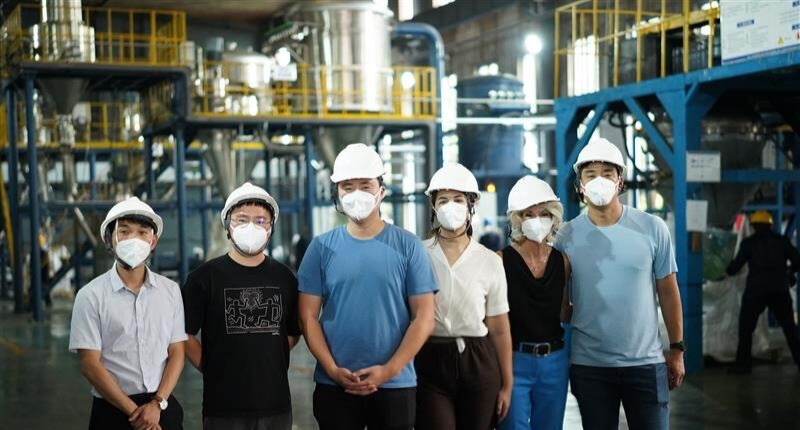Sodium-ion batteries
Unigrid scales sodium-ion battery production tenfold via Asian contract manufacturing
San Diego firm expands global manufacturing capacity tenfold to 100 MWh per year, with 1 GWh targeted in 2026.

By
Tristan Rayner
Oct 29, 2025
Products
Products & Services
Sodium-ion batteries

Image: Unigrid
Unigrid announced today that it has expanded its battery production capacity to 100 MWh per year, a tenfold increase, and through contract manufacturing via a network of battery foundries, will aim to reach another tenfold increase for 2026.
Speaking to ESS News, the company said the foundry-based approach allows it to scale rapidly without the capital burden of building its own factory. Its sodium-ion batteries supply both stationary storage and e-mobility markets, with certifications under UN 38.3 and UL 9540A standards.
On the attempt to scale up without the enormous expense and risk of starting a new greenfield facility, CEO and co-founder Darren Tan said Unigrid’s approach contrasts with the new gigafactory model. “Unlike other battery companies who seek large amounts of capital to build new gigafactories, Unigrid has adopted a fabless model, and instead, chose to work with battery foundries to immediately scale production without the financial risks and production challenges related to building and operating its own factory,” Tan said.
Tan explained that the company contracts manufacturing lines across several countries. “Due to the overbuild of battery production capacity over the past few years, numerous battery factories worldwide, including the US, China, and Korea, are now underutilized,” he said. “These factories offer foundry services in order to maintain revenue and keep the line operational.”
Tan wouldn’t be drawn on the exact facilities or logistics of supply, saying only, “Unigrid is a subscriber of several foundries. The company buys raw materials from the commodity open markets, contracts production on foundries using its proprietary recipes, and finished goods are shipped directly to customers.”

He added that the sodium-ion cells from Unigrid have compatibility with existing lithium-ion production lines allows for rapid demand fulfillment and makes the model possible.
“[We] can serve customers within a short turnaround cycle and remain flexible in its operations. This is only possible because Na-ion batteries are directly compatible with existing Li-ion production facilities, so we can use the same manufacturing facilities already producing Li-ion batteries, allowing rapid, drop-in integration without building new infrastructure,” he said.
In its press release, Unigrid said it has secured offtake agreements for 12 V starter and behind-the-meter storage systems, and previously announced deals such as Sodion Energy in Singapore procuring 10 MWh of its batteries. It has also been supported by a $2.9 million California Energy Commission RAMP grant to establish a 12,000 sq ft pilot facility in Sorrento Valley in San Diego.
The company was founded in 2021 as a University of California, San Diego spin-off, created by Tan and co-founder Erik Wu, aiming to commercialize Na-ion cells developed from doctoral research
ess-news.com
Sodium ion cells have arrived.
And they will scale rapidly!
Eric |







